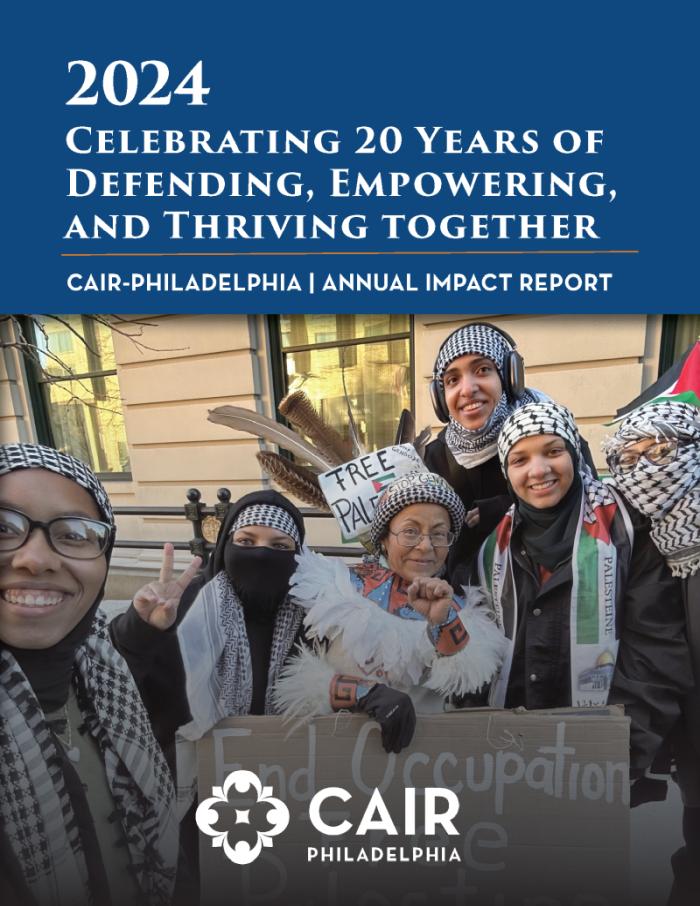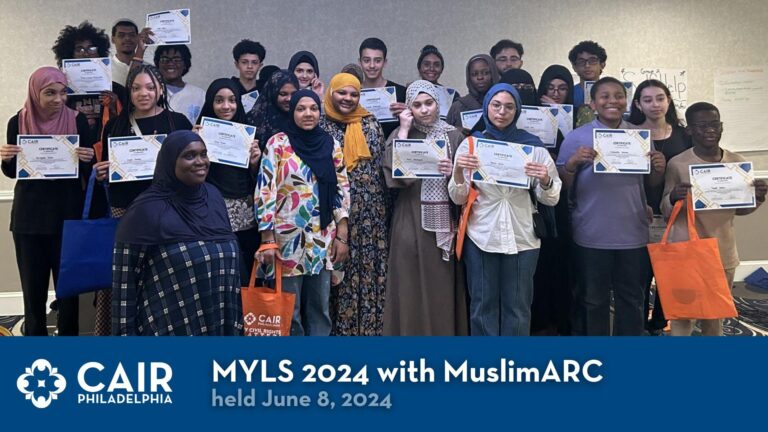
by Jacob Bender, CAIR-Philadelphia Executive Director
When I was 12 years old, my parents took me to hear Dr. Martin Luther King, Jr. speak at an outdoor rally for civil rights in the Watts section of Los Angeles. We were some of the very few white folks in the crowd. I can still remember the eloquent words pouring out of the man on the stage, the triumphant voice thundering for justice.
The day after hearing Dr. King speak, I was back in school, and I must have mentioned the event to my social studies teacher, because she asked me to give a report to the class. That afternoon, some boys followed me after school, yelling “n*gg*r lover” at me for a few blocks.
Thus was a young boy in Los Angeles taught a lesson about the twin face of the American psyche; on the one hand, the love of humankind and the quest for freedom and justice, and on the other, the pervasive evil of American racial and religious prejudice. Looking back, I believe these two related experiences left an indelible impression on me, and I am sure led me to be now working for CAIR-Philadelphia.
A few years later, I came home from high school one day to find my father sitting in front of the TV watching news reports on the assassination of Dr. King. He was crying. It was the only time I ever saw my father cry.
Forty-eight years after his murder, Dr. King’s legacy continues to be of the upmost importance, especially in light of the Black Lives Matter movement, as well as the eruption of Islamophobia across the nation. All those who hunger nonviolently for justice, as does CAIR, walk in his footsteps.
I have long believed that Dr. King’s greatest speech was not his “I have a dream” oration in at the Lincoln Memorial in 1963, but his speech at The Riverside Church of New York City in 1967. It was here that he came out in opposition to the Vietnam War, defying both his colleagues in the Civil Rights Movement, as well as his ally in The White House, President Lyndon Johnson. In this speech, Dr. King taught us about interconnectedness of oppression, and bravely linked the fight for African American political rights with both the struggle for economic equality in American, and with the peace movement opposing US war in Vietnam.
The lesson for today, I believe, is that the Muslim’s community’s battle against Islamophobia cannot be won in isolation, but only by seeing the relationship of anti-Muslim bigotry to other forms of oppression (racial, religious, sexual, economic, and environmental), and by joining with other communities to create a nation where the people will…
“… stand out firmly for justice, as witnesses to Allah, even as against yourselves, or your parents, or your kin, and whether it be (against) rich or poor: for Allah can best protect both. Follow not the lusts (of your hearts), lest ye swerve, and if ye distort (justice) or decline to do justice, verily Allah is well- acquainted with all that ye do.” Verse 135 of Surah Al Nisa
Listen to Dr. King’s 1967 speech at The Riverside Church of New York, with an introduction by Rev. Jospeh Lowry, on YouTube:





